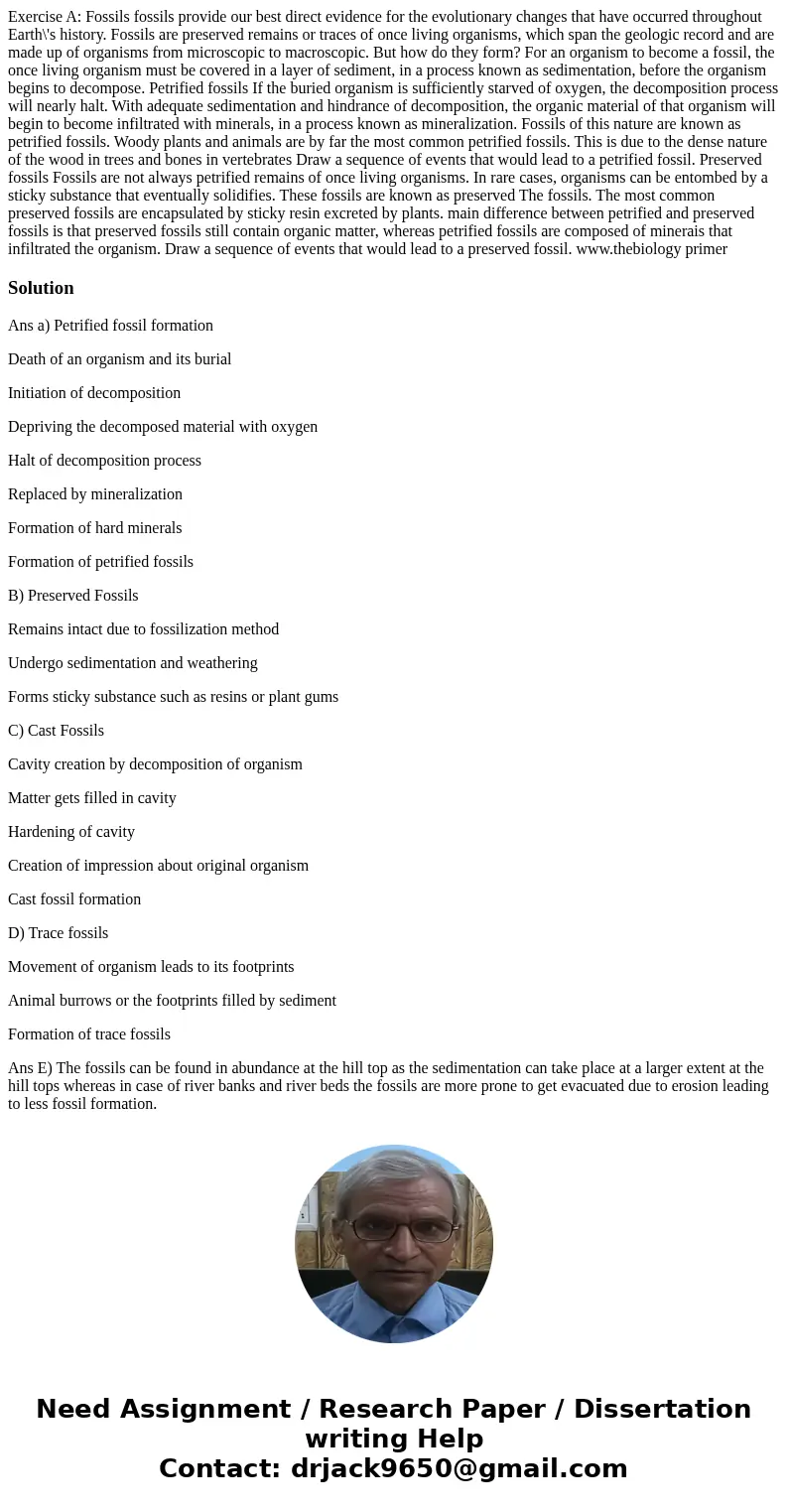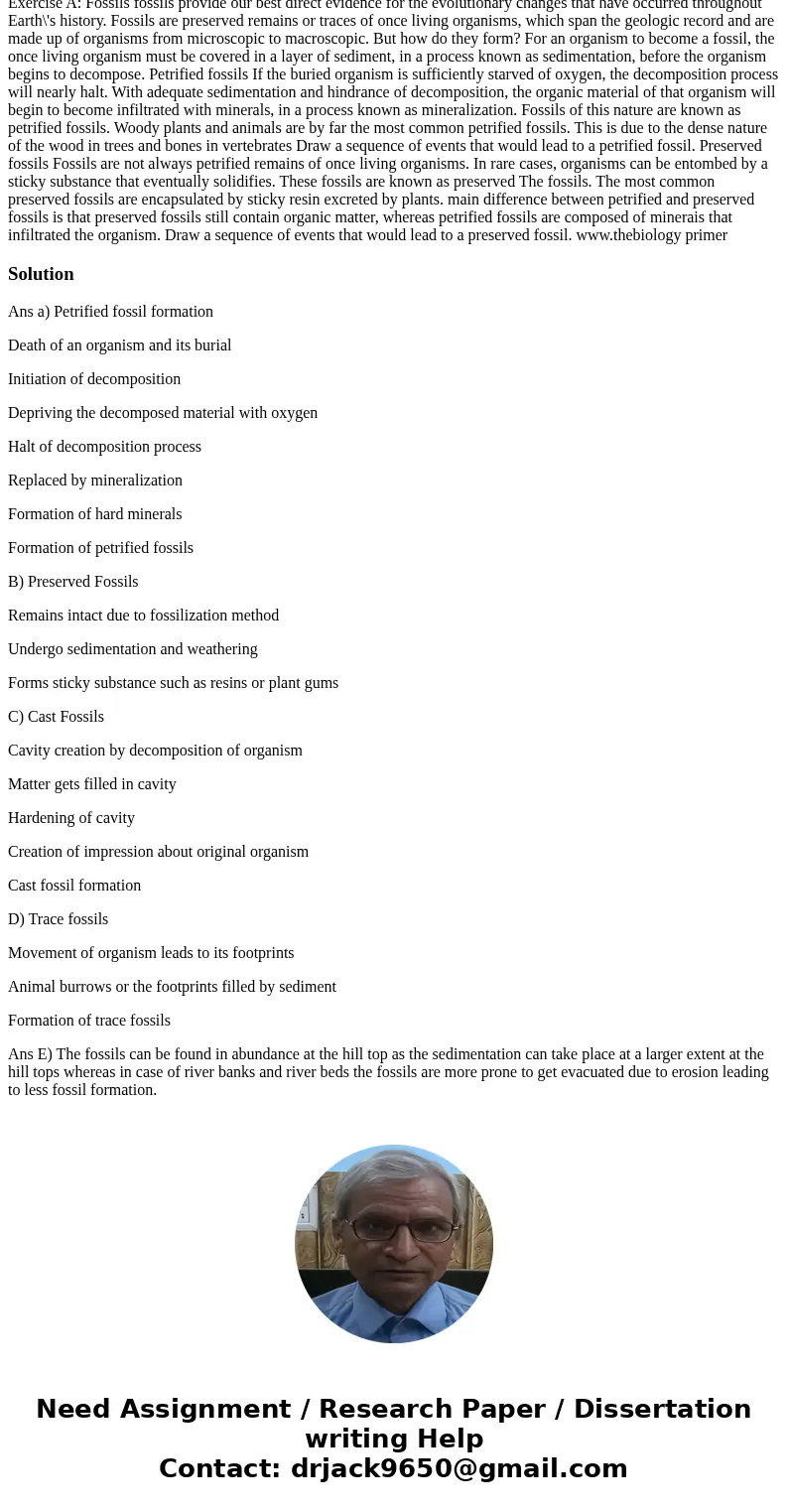Exercise A: Fossils fossils provide our best direct evidence for the evolutionary changes that have occurred throughout Earth\'s history. Fossils are preserved remains or traces of once living organisms, which span the geologic record and are made up of organisms from microscopic to macroscopic. But how do they form? For an organism to become a fossil, the once living organism must be covered in a layer of sediment, in a process known as sedimentation, before the organism begins to decompose. Petrified fossils If the buried organism is sufficiently starved of oxygen, the decomposition process will nearly halt. With adequate sedimentation and hindrance of decomposition, the organic material of that organism will begin to become infiltrated with minerals, in a process known as mineralization. Fossils of this nature are known as petrified fossils. Woody plants and animals are by far the most common petrified fossils. This is due to the dense nature of the wood in trees and bones in vertebrates Draw a sequence of events that would lead to a petrified fossil. Preserved fossils Fossils are not always petrified remains of once living organisms. In rare cases, organisms can be entombed by a sticky substance that eventually solidifies. These fossils are known as preserved The fossils. The most common preserved fossils are encapsulated by sticky resin excreted by plants. main difference between petrified and preserved fossils is that preserved fossils still contain organic matter, whereas petrified fossils are composed of minerais that infiltrated the organism. Draw a sequence of events that would lead to a preserved fossil. www.thebiology primer
Ans a) Petrified fossil formation
Death of an organism and its burial
Initiation of decomposition
Depriving the decomposed material with oxygen
Halt of decomposition process
Replaced by mineralization
Formation of hard minerals
Formation of petrified fossils
B) Preserved Fossils
Remains intact due to fossilization method
Undergo sedimentation and weathering
Forms sticky substance such as resins or plant gums
C) Cast Fossils
Cavity creation by decomposition of organism
Matter gets filled in cavity
Hardening of cavity
Creation of impression about original organism
Cast fossil formation
D) Trace fossils
Movement of organism leads to its footprints
Animal burrows or the footprints filled by sediment
Formation of trace fossils
Ans E) The fossils can be found in abundance at the hill top as the sedimentation can take place at a larger extent at the hill tops whereas in case of river banks and river beds the fossils are more prone to get evacuated due to erosion leading to less fossil formation.


 Homework Sourse
Homework Sourse